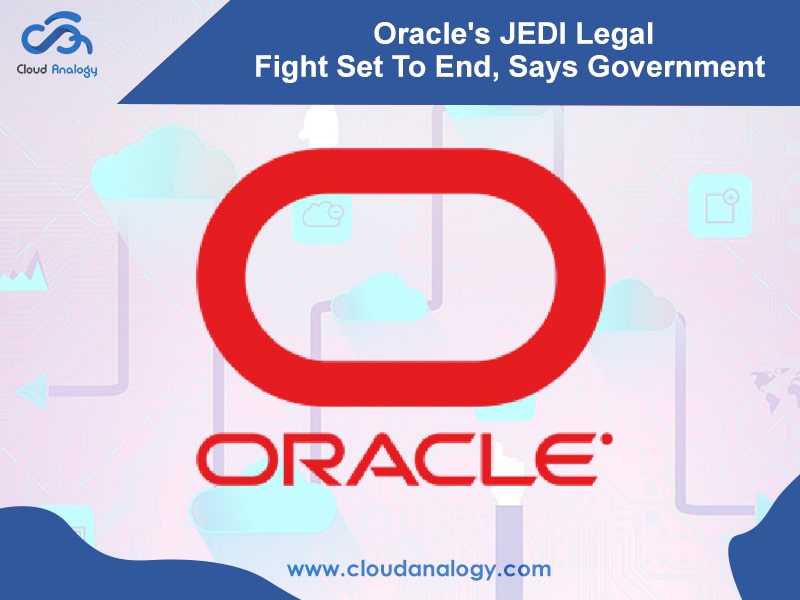Government lawyers told the federal appeals court that in its long-running legal challenge to the Pentagon’s Joint Enterprise Defense Infrastructure (JEDI) cloud contract against Oracle, they had to come to power – partly because some of Oracle’s legal claims are not related and beside the mark.
Oracle is trying to overturn a lower court decision that found the Defense Department was on a strong legal footing when it crafted the multi-billion-dollar cloud contract. The company alleges that the Federal Court made “serious” mistakes in its ruling such as rejecting Oracle’s allegations of a severe conflict of interest involving Department of Defense (DoD) employees and Amazon Web Services.
Responding to the government’s appeal on December 26, lawyers said that all alleged violations of AWS were controversial because of the Pentagon’s shocking decision in October to choose Microsoft and not Amazon, as the winner of the JEDI contract.
“Indeed, Oracle requested that AWS be eliminated from the JEDI competition, and DoD has effectively granted this relief, albeit for different reasons, by the award to Microsoft,” DoD and Justice Department lawyers wrote in their legal brief before the Court of Appeals for the Federal Circuit Judge.
That’s true, although Amazon is now protesting against the Court of Federal Claims.
They further added, “AWS’s protest of the award to Microsoft does not keep these issues alive. The government intends to defend its award to Microsoft. Accordingly, the possibility of AWS’s protest resulting in the procurement being reopened is speculative at best.”
The government spent its 66-page brief upholding the lower court’s legal decision — including its findings that DoD’s gate criteria excluded Oracle at the initial stages of the competition. However, the trial court supported Oracle on one point and found that DoD violated a section of procurement law that required large indefinite-delivery/indefinite-quantity (IDIQ) contracts to be awarded to multiple winners.
Judge Eric Bruggink came with an exception DoD used to circumvent this law: a provision allows winner-take-all IDIQs when all the orders will be placed at the firm, fixed prices that were set at the time of the original contract.
This might not be the case in JEDI, because the contract explicitly asks winners to add new services to JEDI from time to time as soon as they are available as part of the company’s commercial offerings.
“Contrary to the trial court’s interpretation, nothing in the statute requires that all tasks that will ever be included in the JEDI contract be included ‘at the time of award,’” lawyers wrote.
The question of whether DoD should be awarded JEDI to several providers is essential in the case of Oracle. The company denies the gate criteria the department used to exclude it from the competition were arbitrary and irrational. It also claims that DoD cannot use such restrictive gates in the “multi-cloud” version of JEDI because only Microsoft and AWS can delete them.
However, the government’s filings show that the DoD has no plans to back down from its single-award strategy — and it has many other ways to justify the decision if the court doesn’t like the one already used.
The appellate court has not scheduled the case for oral argument yet, and DoD and Microsoft have started to create some part of the JEDI Cloud before the matter is resolved.
Dana Deasy, the DoD chief information officer, said, “JEDI’s unclassified offerings are expected to be up and running by as early as February, with secret-level services to follow in the fall.”



